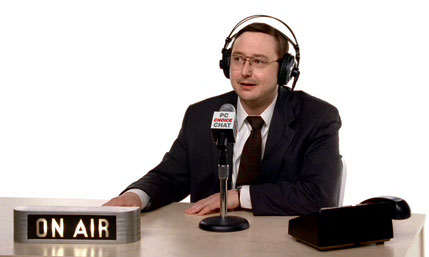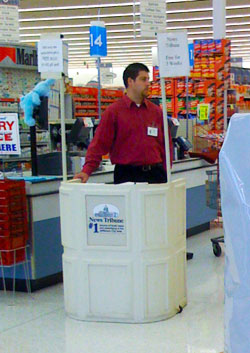
Jerry Del Colliano (Inside Music Media) on yesterday’s firing of 590 people by Clear Channel Communications and why radio “consolidation” turned into such a bad thing:
“I’m sorry that these virtual monopolies didn’t work, but the reason they failed is because their arrogant CEOs ran up the debt to buy stations at prices that were, frankly, never really worth what sellers pumped them up to. Now they can’t service that debt and even though they could probably survive an economic downturn (radio always used to in past recessions), the debt they ran up during the consolidation years is killing them.”
I think I might have run out of anything more to say about the challenges facing radio.
In my radio fantasy, everyone working in radio today is raptured up to heaven, leaving thousands of empty stations with the transmitters still on and records “chick” “chick” “chick’ing” on the still spinning-turntables. (Okay, I know they don’t use turntables anymore but it’s my fantasy.)
Listeners tip toe down deserted hallways, peeking into empty studios, wondering where Rush went.
Eventually, someone sits down at the microphone and figures out how to turn it on. What do they say? What would radio become? Would they hastily call a sales meeting and begin selling ads? Would they assemble a focus group and put together a tight playlist?
I have no idea. Maybe they’d just stick their ear buds in slip out quietly, locking the door behind them.



 I almost didn’t post this because I don’t want to read anything into the photo. But this young man is soliciting subscribers to
I almost didn’t post this because I don’t want to read anything into the photo. But this young man is soliciting subscribers to